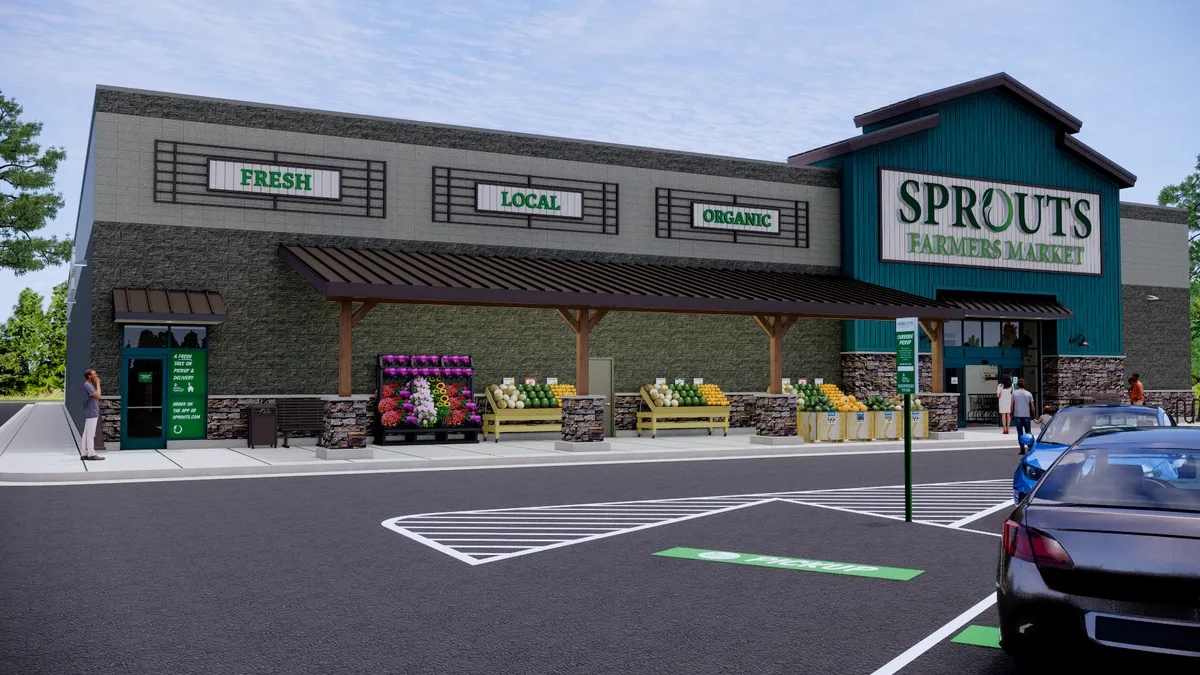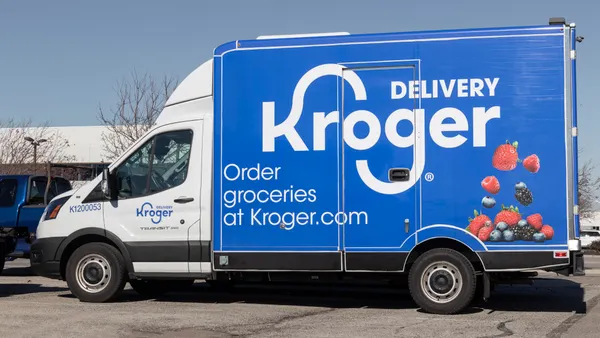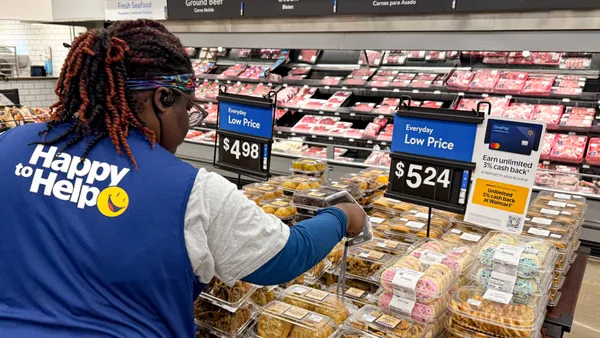Dive Brief:
- Sprouts Farmers Market has closed a $700 million revolving credit line connected with its ability to meet goals related to its sustainability initiatives, the specialty grocery chain announced on Friday.
- The retailer will incur lower borrowing costs under the loan facility if it achieves objectives for the sale of socially and environmentally sustainable products and the diversity of its board of directors.
- Sprouts is joining a growing number of companies that are linking their sustainability efforts to their relationships with financial institutions.
Dive Insight:
Sprouts' new loan facility replaces one that was "substantially similar" but did not feature the sustainability-linked terms that are built into the revised agreement between the grocery chain and its lenders.
Sprouts had $418 million in credit available through the loan facility when it closed on the updated terms, according to the company.
The health-focused food retailer plans to rely on cash flow generated by its business to cover operational expenses and costs related to the development of new stores but wants to have the line of credit on hand to provide it with "greater financial flexibility as we grow," Chip Molloy, Sprouts' chief financial officer, said in a statement.
Under the terms of the credit facility, Sprouts will see lower borrowing costs if it is able to generate sustainable product sales that exceed a pre-set level and pay more in interest and fees if it fails to meet that target, according to a Form 8-K the company filed with the Securities and Exchange Commission on Friday. The rate will not change if Sprouts' sales of those items is in line with the threshold.
Sprouts will also earn an interest rate reduction if the number of its directors who "self-identify as gender or ethnically diverse" is above a pre-set threshold for a given prior fiscal year, according to the securities filing. The interest rate will remain the same if it does not exceed the threshold and will rise if it fails to meet the target. Fees will also vary based on the diversity of the board.
The borrowing terms, known as "sustainability linked loans principles," reflect guidance published last year by the Loan Market Association, the Asia Pacific Loan Market Association and the Loan Syndications and Trading Association, according to the filing.
Sprouts emphasized in its environmental, social and governance report for 2020, the latest such report it has released, that it is focused on meeting a range of goals related to the environment and the makeup of its board of directors.
Other grocers have also sought to demonstrate their commitments to sustainability by entering credit agreements that tie borrowing costs with their ability to meet targets linked to environmental or other goals that offer societal benefits.
In August, Australia's Coles supermarket chain announced it had set up a borrowing agreement that links to its ability to cut carbon dioxide emissions, reduce the amount of waste it sends to landfills and increase the percentage of women in leadership roles. In addition, Ahold Delhaize entered a loan facility in December 2020 that connects its costs to progress on food waste reduction, carbon emission reduction and promotion of healthy eating.
The efforts by grocers to develop incentives related to their sustainability initiatives come as customers say the food retailing industry should step up eco-friendly initiatives. Sixty-seven percent of respondents to a survey of 1,000 U.S. consumers by Retail Insight earlier this year said retailers haven't yet done enough to demonstrate their commitment to the environment.











